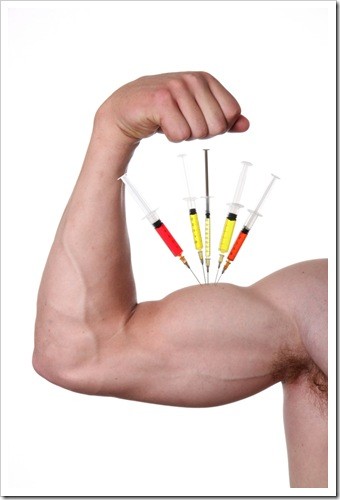Performance Enhancing Drugs: Parental Advice
by Dr. Barry Coniglio
Read Performance Enhancing Drugs: Parental Advice by Dr. Barry Coniglio to learn more about Coniglio Chiropractic Wellness Center and our Chiropractic office in Mantua, NJ.
We look forward to serving you! Call - 856-468-4200.

The risks of anabolic steroids are very well documented and has been highly publicized. They can have toxic effects on the liver and cardiovascular system, they can arrest normal growth (despite the appearance of promoting it), they can cause fertility problems, behavioral and psychiatric problems, and produce possibly permanent masculine characteristics in females and breast enlargement in males.
Why, then, would kids take them? Well, why do kids take part in many ill advised activities? Most often it is some type of perceived pressure.
The perceived pressure (including parental) to perform better at sports is greatly responsible for steroid use among youths; the feeling that they won’t be afforded the opportunity to make it to the top level if they don’t somehow rise above the pack when young. At that top level, of course, and even at collegiate level, checks are in place to detect steroid use, but that doesn’t happen very much at high school. Perhaps these teenagers feel they will fall in line when they have to, but they’ll take whatever they can to enhance their performance and visibility while it’s still possible. The other reason for guys taking steroids is simply the desire to look better, usually to impress the opposite sex.
Just how widespread is this steroid use among youths? According to surveys, over 6% of students in the U.S. had taken them at least once without a doctor’s prescription, either orally or in injected form.
Talking to Your Kids About Performance Enhancing Drugs
This is no different to quizzing them on drug abuse. After all, it is drug abuse. As such, you can’t blaze in like the proverbial bull in a china shop, which will only alienate the kid, and then that’s conversation over before it’s even started. Each child is different, but the following advice may help:
- Be natural and invite conversation, showing a willingness to listen not lecture.
- Ask how their sports training is progressing.
- Ask if they think there’s any way to get an edge.
- Ask about supplements, if they are using any, what they are and how they think they’ll benefit.
- Broach the subject of steroids carefully but openly. If they are on steroids, they’ll already know what you’re angling at. Talk about the choices you make in life, and how each person has to decide if they want to compete honestly or tweak the odds by illegal actions.
- Even if you don’t see signs in your own kid, observe how their friends are developing physically. Have they suddenly packed on some muscle in a short space of time, or has their behavior changed? While you are not their keeper, your eye should be to the chances that your own kid may become influenced by their actions.
- If you notice signs of steroid use in your child, have them tested and get professional help if the results are positive. Psychological problems can go hand in hand with physical changes.
The Most Important Facts Your Teenager Should Know About Performance Enhancing Drugs
Worst-case scenario, steroids can kill. And even if they don’t, there are so many awful side effects that can permanently damage their short- and long-term health, as described above.
Steroids don’t enhance skills. Muscle size alone does not produce a better athlete. That involves neurological factors such as hand-eye coordination, balance, reaction, and reflexes. Plus, the negative psychological effects of steroids may so screw up their attitude that they end up losing their natural edge.
Steroids = cheating. Do they love their sport so little that they would see it undermined by unfair competition? Cheating steals the achievement from any success they may enjoy. Striving to be the best possible athlete naturally ensures they can feel proud no matter how they fare in competition.
Enhanced performance can be achieved with the help of a chiropractor, who can restore the natural equilibrium to a body that may be held back by structural issues. Advice on good rest, exercise, injury-avoidance and nutrition are also available from your doctor of chiropractic.
For Your Health,
Dr. Barry Coniglio





